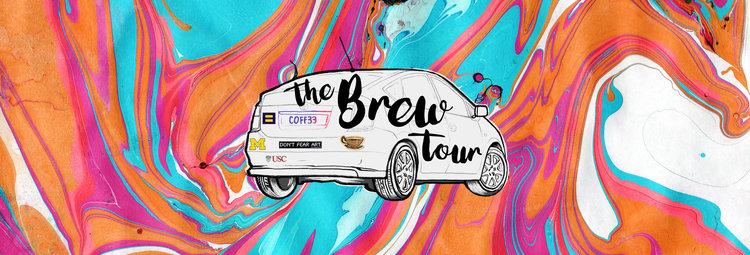From: Seattle, WA
Age: 29
Instrument: Clarinet/ E flat Clarinet
School: University of Southern California, GC Clarinet Performance
Favorite Drink: Black Coffee, or Grande Mocha no whip Extra Foam
"Sensitivity in our culture has a stigma, in my opinion, in that being overly sensitive is weak. But, the problem is that people aren’t using the right language, and the words are misdefined. Sensitivity is a strength. It makes you more aware of yourself, other people, what’s going on around you, and you are, no pun intended, more in-tune with your surroundings. A fragile person is someone who is easily broken by their surroundings or by other people; fragility is a negative thing. To describe someone as sensitive is a huge compliment. Vulnerability is also a strength and it is an act of courage. It is sharing yourself in an environment where there is a mutual understanding in sharing and connecting with others. To connect is to be creative. You can be vulnerable with yourself too by telling yourself the truth, because that ultimately leads you to be open with other people. To be open and connect with people is what it means to be an artist, and that’s what we do as musicians. So, the more that we tell ourselves the truth, and the more that we can embody qualities of a sensitive person, I think the better performers we can be.
As a sidenote, there is a difference between shame and guilt, which is something Brene Brown talks about a lot. We all experience shame where we do terrible things, or we make mistakes, but the difference between shame and guilt is that shame is saying, “I am bad”, whereas guilt is saying “what I did was bad.” It’s a healthier way of approaching things and it ties into music too. In our musician culture and music school culture, people get really negative about their playing, and they say, “I screwed up” or “I am out of rhythm, I am out tune.” Instead, they should say, “that was out of rhythm, that was out of tune, or that could be more expressive.” It gives you so much more room to improve and make progress, because instead of blaming yourself for the things that you as a person can or cannot do, you instead identify the things that you did or did not do and then work on them. Blame is a lack of accountability, including blaming yourself. But, we are all people that just do things. I am not the clarinet, just like you are not the french horn. I think when you get that far into it it just leads to an existential crisis, because you have to place distance, and you have to put a healthy psychological boundary between yourself and your instrument."
Advice to other musicians: "If things are not working out for you, if things are extremely difficult, it will always pass. Everything is temporary and while you’re in that, learn as much as you possibly can and just stay aware and stay steady, and just know that things will always work themselves out. I’m sure it’s a truism for everyone, but, “this too shall pass.” One experience does not define a person. That works for being a musician, but also in life. "
Quote: "The Man and the Arena"
"It is not the critic who counts; not the man who points out how the strong man stumbles, or where the doer of deeds could have done them better. The credit belongs to the man who is actually in the arena, whose face is marred by dust and sweat and blood; who strives valiantly; who errs, who comes short again and again, because there is no effort without error and shortcoming; but who does actually strive to do the deeds; who knows great enthusiasms, the great devotions; who spends himself in a worthy cause; who at the best knows in the end the triumph of high achievement, and who at the worst, if he fails, at least fails while daring greatly, so that his place shall never be with those cold and timid souls who neither know victory nor defeat." -Theodore Roosevelt
Cause/Charity: Seattle Youth Symphony Orchestras, Marrowstone Music Festival
Are inspiration and motivation the same?: "No, I think they’re separate. Inspiration is kind of a special thing. It doesn’t come around very often. I think what’s more important and a thing that is day in and day out is motivation. I think inspiration is a little more surreal, but motivation is practical, tangible, right there in front of you. I’m not inspired all the time. If I were to be inspired all the time I would just be exhausted, and I think people would hate me after a while if I was just wide eyed all the time. We get those moments when it’s right, but motivation is a little more important, because you can control it. I don’t know if you can control inspiration, but motivation is totally within your control."

